- Home
- Marina Oliver
The Irish Bride Page 2
The Irish Bride Read online
Page 2
She and Brigid played endless games of chess, read until their eyes were tired, and occupied themselves with making baby clothes and doing embroidery.
'I know, I'll teach you to shoot!' Sophia said on one particularly depressing day soon after Christmas.
'To shoot? Bow and arrow or pistols?' Brigid asked, laughing and only half believing her.
'With my figure I can't hold a bow properly! No, Alex turned one of the barns into a shooting gallery for me. I learned to use a pistol when Papa was teaching my brothers, and I am at least as good as they are! It is some exercise. Come, wrap up well, and we will spend an hour there.'
Brigid was happy to do whatever Sophia wanted, and to her surprise found she had an aptitude, being able to hit the round target set up against the furthest wall most times, and once even finding the centre.
'This is a beautiful pistol,' she said as she handed it back to Sophia. 'I hadn't realised they could be so small, this one could fit into a cloak pocket.'
Sophia stroked the silver-embossed pistol.
'Matthew brought it back from Germany for me,' she said. 'I carry it if I am travelling without Alex, but I don't know if I would ever be able to use it on a real person!'
*
It was March before the Langstons and Brigid returned to South Audley Street, and Matthew was still in Yorkshire. It had been a particularly severe winter, and Mr Langston was reluctant to permit Sophia to travel back to London over wet or icy roads. He eventually agreed, when she pointed out that if they did not travel soon she would be too far advanced in her pregnancy to go at all, and then she would be dependent on their local country doctor and the village midwife.
'Surely that is not what you want?' she asked. 'I will travel as slowly as you wish, with as many cushions as will fit into the chaise.'
Sir Kenelm and Joanna had reached Rome just before Christmas, and intended to travel for some months more in Italy, coming home by gentle stages through France. Sophia wanted to be in London when they arrived home. The twins had spent Christmas with Sophia and her sons, and did not appear to be missing their father or Joanna unduly, so absorbed were they in the new worlds of school, and the many friends they had made there.
They reached South Audley Street late in the afternoon and Mr Langston hustled Sophia, who was muffled in a fur-lined cloak and several shawls so that, she complained, she could scarcely breathe, into the house, saying she must not risk getting a chill.
'You must go straight to bed, my dear. Brigid, take her upstairs and make sure the fire is well alight. And send for a hot posset.'
Sophia nodded meekly, but when she and Brigid were safely in her room she threw off her shawls and struggled out of the cloak.
'You'd think it was my first baby, and no one had ever given birth before!' she exclaimed.
'He's anxious and it's natural,' Brigid said. 'Let me help you undress and get into bed, then I'll go and make you that posset.'
'He wants a daughter,' Sophia said, her voice muffled as Brigid pulled her gown over her head. 'So do I, but I shall be thankful for whatever it is, I'm feeling so bloated and as big as an elephant!'
Brigid wondered whether twins ran in the family, but she did not wish to alarm Sophia by putting into her head the idea she might have to give birth to two babies. She really knew very little about the processes of pregnancy and birth, and had no notion of whether having twins was any more difficult or dangerous than having just one baby. Sir Kenelm's first wife had died after giving birth to his twins. She shivered, and tried not to think of it. During the past few months she had grown very fond of Sophia. She tucked her up into bed and went to the kitchens to make a hot, soothing posset. When Sophia had dropped into sleep she went up to her own room on the floor above, and found there two letters which, the housekeeper had said, had come for her during the past week.
'There was no point in sending them to you in Oxfordshire, as you were coming to town almost immediately.'
*
Brigid looked at the superscriptions on the letters, which she thought were in the same hand, but it was not a hand she recognised. She started to read, and gave a gasp of surprise. Both letters, the second one saying almost the same as the first, with an explanation that as they had received no reply they suspected it had gone astray, were from her father's sister-in-law, her Aunt Mary.
She tried to recall what her father had told her about his family. His mother had died when he and his younger brother were very small children. Brendan had married, against his father's will, when he was barely one and twenty. Later, her own father had quarrelled with the old man, who sounded an irascible tyrant, and had left Ireland to make his way in England. He had no further contact with his family, but he had heard through an Irish friend that Brendan had made it up with his father and was living with his wife and son in the ancestral castle a few miles from Dublin.
'The place was almost a ruin when I left,' her father had said. 'I doubt the old man or Brendan would have done anything to restore it, so I imagine it has fallen down by now.'
She went back to the letters. Her aunt wrote that they much deplored the family estrangement, particularly as she had never had an opportunity to meet Brigid's father before he died, or get to know his only child. However, as they had discovered she was living in London, and they were intending to spend the Season there, they hoped she would agree to meet them.
Her grandfather, Aunt Mary said, had died two years previously. At the time they had not known where she was, or whether her parents were still alive, so had been unable to notify her. Recently, however, they had learned of her being in London. They had also learned of the deaths of her parents, and sent their commiserations. It was so sad they had not been able to meet them.
Brigid put down the letter. How strange, she thought, to suddenly find she had relatives. Of course she had known they existed, but as she never expected to go to Ireland she had never imagined they might one day meet. They had cast off her father, and he had never expressed any wish to return to the land of his birth, or have any contact with his father or brother. What had induced her aunt to write now? Was it just the fact they were in London, so there was an opportunity? Or, and she immediately chastised herself for the suspicion, was it because they thought they might meet with her unexpectedly while they were in London, and it could be embarrassing for them? Why, in any case, were they here? Was it their first time, or had they been coming, unknown to her, for years?
She turned back to the letter. It had been crossed and was difficult to read, and when she finally made out what it said she found she could not believe she had read it aright. Her aunt and uncle, Aunt Mary said, were anxious to make up to her for what she and her parents had suffered.
'We didn't suffer,' she said to herself. 'While they were alive I had a wonderful childhood.'
'We would like to offer you a home with us, my dear, to make up for your grandfather's intransigence,' Aunt Mary wrote. 'We all do hope to see you very soon. Your loving Aunt Mary O'Neill.'
*
Chapter 2
Brigid sat staring at the letter, bemused. How had her aunt discovered where she was now, if they hadn't known beforehand, and were unable to tell her about her grandfather's death? Had they met any of Sophia's friends? And why should these friends mention she was with Sophia? She hadn't met many of them before they went into the country, and Sophia had been sickly throughout the months there, so they had done no entertaining for their neighbours. Unless, she thought, a friend of Sophia's had known about her and connected the names if she had met her aunt and uncle. She supposed that could have happened.
She looked at the address, which she had not noticed as she read the letter. They lived in Wimpole Street where, she knew, many houses were rented for the Season. It was not one of the best addresses, but Brigid supposed they might not have a great deal of money. Yet they were offering her a home. Had they disapproved of her grandfather's quarrel with her father? Were they hoping, in this fashion, to try an
d make up to her for his neglect?
Then she shook her head. She could not even consider it. Her first duty was to Sophia, at least until the baby was born. She would like to meet them, however, they were all she had of family. Her mother had been an only child, and Brigid had never known her grandparents. There were no other relatives.
She sat down at the small writing desk in her room and dashed off a short reply, thanking her aunt for getting in touch, saying she would like to meet them soon, but explaining she could not leave Sophia until after the baby was born.
Then she sat back and nibbled at the end of her pen. She had been too impulsive, even hinting she might accept their offer of a home. She didn't know these relatives. They might be quite uncongenial. She could be far better off pursuing her original plan of looking for a position as a governess, earning her own money, rather than becoming a poor relation depending for everything on the charity of an unknown family, and having no money of her own. Besides, she would be hard put to it, if they did not get on, to leave them, whereas she could abandon a governess's position at any time if it did not suit.
She tore up the note and wrote a shorter one, simply saying she would like to meet them, and deciding, if the weather improved, to take it to Wimpole Street on the following day. She would not commit herself, and she would leave it to them to appoint a meeting.
The following morning, as she helped Sophia dress, she asked if she might go out for a short while.
'Of course. You are looking abstracted, worried. Is anything the matter?' Sophia said as she sat in front of her dressing table to brush her hair.
'I'm puzzled, I suppose,' she said, and told Sophia about the letter. 'How did they find me? And why, if they are in straightened circumstances, do they offer me a home?'
'You cannot be sure their circumstances are straitened. I assume they would have been your grandfather's heirs?'
'I don't know, but he'd cast off my father, so it's probable.'
'Did your father have any communication with his family?'
'I was not aware of any. He certainly had none with his father.'
Sophia turned round to look at her, frowning slightly.
'But he still had friends in Ireland?'
'I suppose so, but I didn't know them.'
Sophia nodded. 'They could have kept him informed. But he died before his father, from what you say. Brigid, my dear, you are welcome to stay here for as long as you wish.'
'You've been so kind already! I can't impose.'
'Nonsense. I'd have suffered far more without your company these last few months. Alex would have driven me distracted if you had not been here to deflect his anxiety.'
Brigid laughed. Sophia's husband had, she thought, suffered more throughout this pregnancy than Sophia herself. He was constantly checking how she felt, worrying whether she ought to eat certain foods, accompanying her whenever she took a short stroll, his arm ready at all times to catch her should she stumble. He only left her when Brigid was there, and then reluctantly. He insisted that her maid slept in her dressing room, ready to attend Sophia at all times. It was odd, Brigid thought, for he already had two sons, Sophia had been pregnant twice before, and she told Brigid he had not been nearly so concerned then.
'Well, you must not do anything hasty. I will write a note you can take with yours, and ask them to call on me.'
'And you can judge them for yourself?' Brigid asked.
Sophia grinned. 'Of course. Brigid, dear, don't be offended. I am, after all, older than you, and have been on the town for a dozen years or more. You, on the other hand, have led a sheltered existence at Miss Benson's school, as a pupil and teacher, then with Joanna in Yorkshire. You don't know the world as I do. It would be folly to trust yourself to these people without deep consideration. So I will invite them to call. Now, let me write that note and you can be off to take it.'
*
Matthew stood in his stable yard and looked up at the sky. The clouds had lifted and a weak sun struggled to melt the snow still lying on the ground.
'What's it going to do this week?' he asked his head groom. Jimmy was a blunt-spoken Yorkshireman who had been in his father's service since the age of ten, when he had been taken from one of the mills in Leeds after an accident with one of the machines had knocked him senseless and would have torn off an arm, had Matthew's father, who was visiting the mill, not dragged the lad out of the way.
'More snow ter come,' Jimmy said. 'If you'm thinkin' of goin' ter Lunnon, best set off terday. Though it'ld be best ter wait a week or so. Howmsoever, yer'll do what yer wants, as yer always did, Master Matthew!'
Matthew grinned at him. 'You're an old worrier! I'm tired of waiting. There's nothing more I can do here. Get the chaise ready, will you? And two of the best horses. You'll follow to lead them home after the first stage.'
'There'll be plenty o' job 'uns, yer'll have yer pick,' Jimmy said as he turned away. 'No need ter book ahead.'
Matthew nodded. Few people would risk travelling when the roads were still covered in fresh snowfalls almost every day, so the posting houses would have plenty of good horses.
He went in to order his valet to pack as quickly as possible, and within an hour was on the road to Leeds. It was tricky, and the postilian had to go slowly, but after Leeds the roads improved, with more traffic to help clear the snow. The weather held, but he had to travel more slowly than he wished. Within a few days he reached his rooms in Ryder Street. By then it was dark, and when he had changed into evening clothes Matthew went out to find himself some dinner and congenial company. It was well after midnight before he returned, but he had discovered that his sister was now in South Audley Street. He would visit her tomorrow.
*
The O'Neills called two days after Brigid had delivered the letters. Rather to her relief they had been out when she went to their Wimpole Street address, but a superior butler had taken the letters and said he would present them to his mistress as soon as she returned. It had appeared to be a better house than she had expected, for many houses let for the Season to provincials who were not up to snuff were shabby and inadequate. Her aunt and uncle were, it seemed, better off than she had expected.
Brigid was intrigued to see how like her father her uncle was, with his reddish hair, faded now, and bright blue eyes, hair and eyes she had herself inherited, though her own hair was much brighter. Aunt Mary, dressed in a youthful muslin gown in an unfortunate shade of pink, with rather too many frills and gathers that failed to disguise her plumpness, was dark-haired, vivacious, and gushing, while Uncle Brendan was taciturn.
'We were so sorry we did not know where you were,' Aunt Mary said, 'so could not inform you of your dear grandfather's death.'
'How did you discover it now?' Sophia asked.
'Oh, someone we met at one of the routs we attended commented on the name, and asked if we could be related. I'm afraid I can't recall her name, though. We have met so very many people since we arrived in London a few weeks ago. People are so friendly.'
'How fortunate,' Sophia said gently.
'It was indeed,' Mary O'Neill said, looking in a puzzled fashion towards her hostess.
'Fortunate to meet someone who knew Brigid was with me,' Sophia added, smiling. 'You normally live in Ireland, I suppose? I understood Brigid's grandfather had some castle, but it was falling down?'
For the first time Mr O'Neill looked animated.
'Not at all! During the last ten years or so, he made many repairs. It is a very comfortable home, but we also spend a lot of time in Dublin, at the house there. And there is a small house in Cork. Well, I say small, and compared to the castle it is, of course, but it is much larger than a village house. And he has a few small houses and farms that are rented out, the houses in Dublin mostly. They are quite a responsibility now I have charge of them. We hope when you come to live with us, Brigid, that we can take you to see them all.'
Brigid smiled, but she looked puzzled.
'I did not know my
grandfather had so many houses,' she said. 'I can only recall Papa mentioning the castle.'
'Perhaps that was the only house he lived in,' her uncle said. 'Now, child, when are you going to come and stay with us?'
'We suggest a short visit first,' Aunt Mary said quickly. 'Of course we all have to be sure the arrangement would work before it became permanent. But now we have met you, I am sure we will all agree wonderfully. And Sinead, our daughter, who is a year younger than you are, dear, is so looking forward to your companionship.'
'I can't leave Mrs Langston for a while,' Brigid said quickly.
'Of course not, we quite understand perfectly, my dear, but we hope you can visit us sometimes so that we can talk again, or come with us to the play, perhaps.'
'And your cousin Colum is anxious to demonstrate his mastery of driving a phaeton,' Uncle Brendan said, laughing. 'He hopes you will consent to drive out with him soon, if the weather is clement.'
Brigid was not at all sure she wished to go driving with anyone, but she nodded.
'Naturally his groom will always be there,' Aunt Mary said, with a frown towards her husband.
'Of course, and Brigid is free whenever you wish to see her,' Sophia said.
'So kind. Now, Mr O'Neill, I can see Mrs Langston is tiring, so we must go. it has been delightful to meet you at last, Brigid dear. And your kind benefactress.'
*
'They seemed friendly enough,' Brigid said thoughtfully, after the O'Neills had been shown out. 'I didn't know my grandfather had all those houses, though. Papa never mentioned them.'
Sophia was frowning. 'I wonder if they feel guilty that your grandfather did not leave you anything?' she said. 'They could be trying to make up for it by offering you a home. Did he, your grandfather, I mean, know that your parents had died?'
'Yes, he must have done, for letters were sent at the time. After all, we knew where he was even if he had lost track of us.'

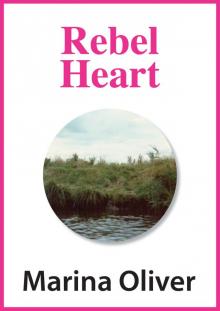 Rebel Heart
Rebel Heart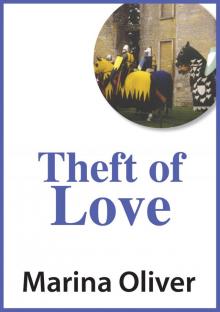 Theft of Love
Theft of Love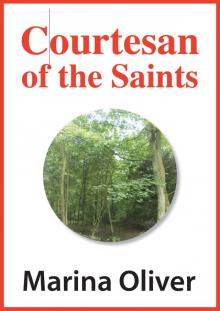 Courtesan of the Saints
Courtesan of the Saints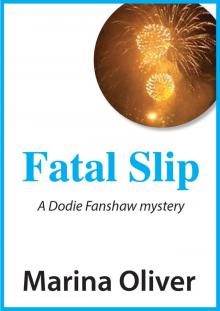 Fatal Slip
Fatal Slip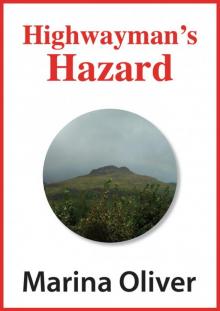 Highwayman's Hazard
Highwayman's Hazard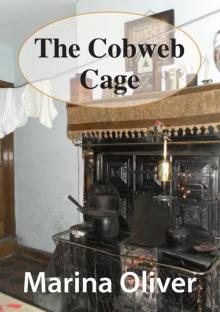 The Cobweb Cage
The Cobweb Cage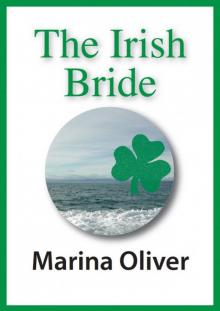 The Irish Bride
The Irish Bride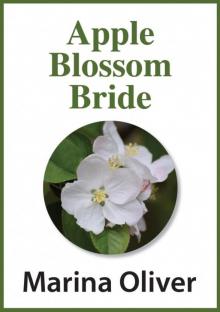 Apple Blossom Bride
Apple Blossom Bride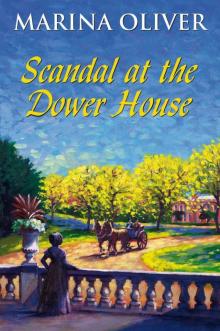 Scandal at the Dower House
Scandal at the Dower House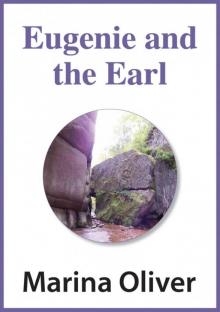 Eugenie and the Earl
Eugenie and the Earl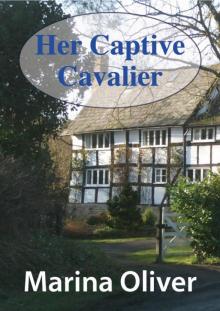 Her Captive Cavalier
Her Captive Cavalier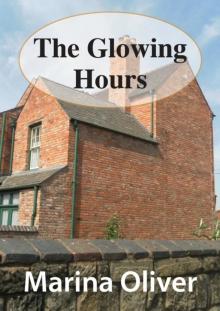 The Glowing Hours
The Glowing Hours Sibylla and the Privateer
Sibylla and the Privateer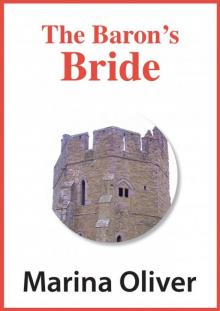 The Baron's Bride
The Baron's Bride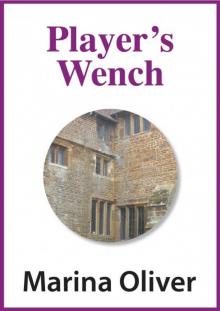 Player's Wench
Player's Wench Gavotte
Gavotte The Chaperone Bride
The Chaperone Bride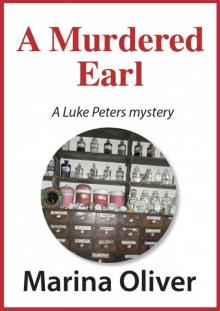 A Murdered Earl
A Murdered Earl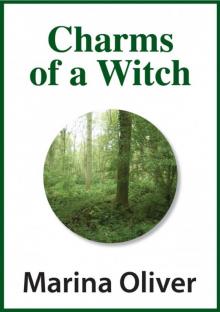 Charms of a Witch
Charms of a Witch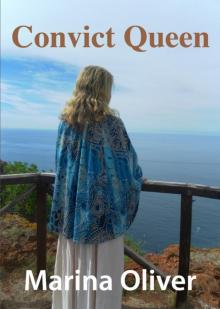 Convict Queen
Convict Queen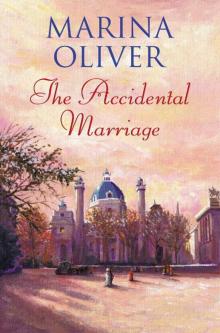 The Accidental Marriage
The Accidental Marriage